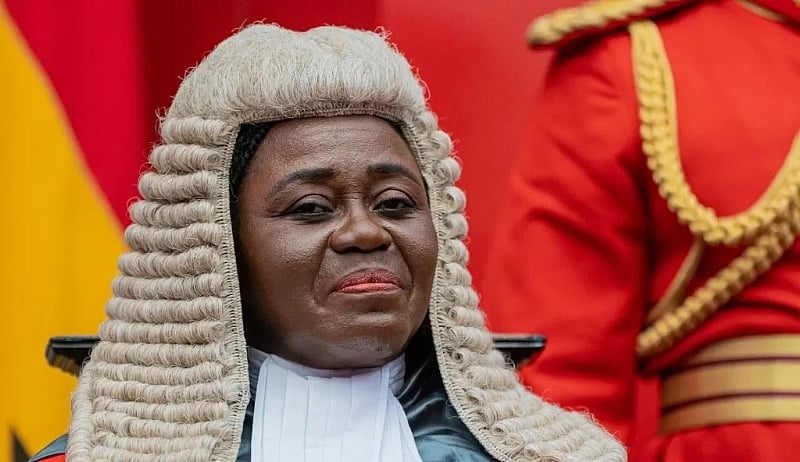The controversy surrounding the potential removal of Ghana’s Chief Justice, Gertrude Araba Esaaba Sackey Torkornoo, has ignited a crucial public debate about judicial independence and the integrity of Ghana’s democratic institutions. The Africa Judicial Independence Fund (AJIF), a prominent voice in advocating for a robust and impartial judiciary across the continent, has stepped into the fray, calling for calm and adherence to constitutional processes while simultaneously highlighting the urgent need for systemic reforms to strengthen judicial autonomy. Their intervention underscores the delicate balance between upholding the rule of law in the immediate case and addressing the underlying vulnerabilities that threaten the long-term health of Ghana’s judicial system.
AJIF’s statement emphasizes the importance of adhering to the constitutionally prescribed procedure for the removal of a Chief Justice, as outlined in Article 146. This process involves a petition to the president, followed by consultation with the Council of State, the potential formation of an ad hoc investigative committee, and ultimately, the opportunity for the Chief Justice to be heard and defend themselves. While acknowledging that the process, based on available information, seems to be following these constitutional steps, AJIF simultaneously expresses deep concern about the inherent fragility of the current legal framework governing judicial appointments and removals. This framework, they argue, is susceptible to political manipulation and undue influence, potentially undermining the very independence it is designed to protect.
The concerns articulated by AJIF echo broader anxieties within Ghanaian society about the perceived politicization of the judiciary. Civil society organizations, legal experts, and political commentators have all voiced alarm over what they perceive as increasing executive overreach and partisan influence in judicial affairs. A public lecture organized by Solidare Ghana in partnership with the University of Ghana further amplified these concerns, highlighting the potential erosion of public trust in the judiciary. Media reports alleging partisan appointments to judicial positions have further fueled these anxieties, painting a picture of a judicial system increasingly vulnerable to political pressures.
This backdrop of apprehension underscores AJIF’s central argument: regardless of the outcome of the current controversy surrounding the Chief Justice, the deeper structural issues plaguing Ghana’s judicial system will persist unless comprehensive reforms are undertaken. The organization advocates for a multi-pronged approach to strengthening judicial independence. Central to their recommendations is the implementation of transparent and merit-based judicial appointments, ensuring that individuals selected for judicial positions possess the requisite qualifications, integrity, and impartiality. This emphasis on meritocracy aims to insulate the judiciary from political maneuvering and appointments based on partisan loyalty.
Furthermore, AJIF calls for enhanced independence and credibility of the Judicial Council, the body responsible for overseeing judicial administration and discipline. Strengthening the Council’s autonomy can shield it from external pressures and empower it to effectively manage judicial affairs without fear of political reprisal. Equally vital is the provision of adequate resources to the judiciary, ensuring it has the financial and administrative independence necessary to function effectively. This includes guaranteeing its administrative autonomy, enabling the judiciary to manage its internal affairs without undue interference from other branches of government.
AJIF also recognizes the importance of public engagement in ensuring judicial accountability, but stresses that such discourse must be constructive and conducted within the confines of the rule of law. Open dialogue about judicial performance and accountability is essential for maintaining public trust, but it should not devolve into attacks that undermine the integrity of the judiciary or become a tool for political grandstanding. The focus should remain on strengthening the institution and ensuring its ability to deliver impartial justice.
The overarching message from AJIF is clear: genuine and lasting reform must be grounded in constitutional principles and driven by the national interest. The organization calls for a comprehensive, inclusive, and well-considered reform process that prioritizes the long-term health of Ghana’s democratic institutions. This process must protect the judiciary from undue influence and ensure a fair and impartial system of justice for all Ghanaians. The current controversy surrounding the Chief Justice, while significant, should serve as a catalyst for broader reflection and action to address the underlying structural weaknesses that threaten judicial independence in Ghana. Only through such comprehensive reform can public trust in the judiciary be restored and the principles of democratic governance be truly upheld.














